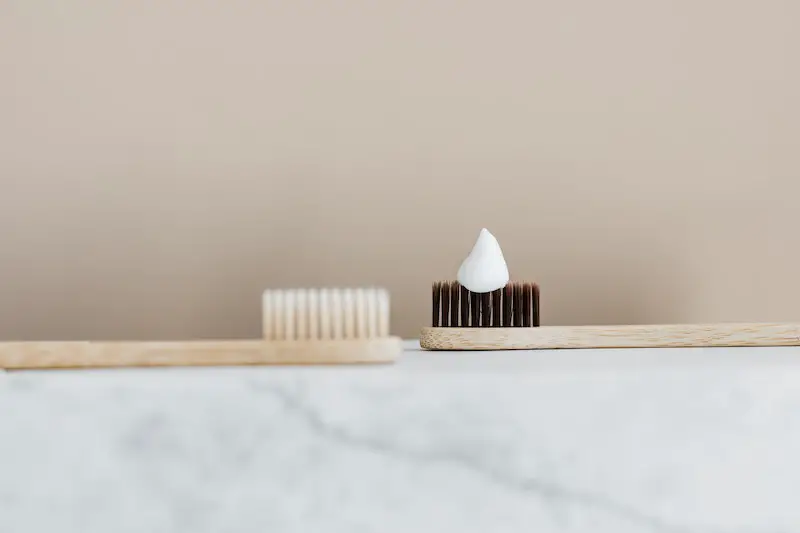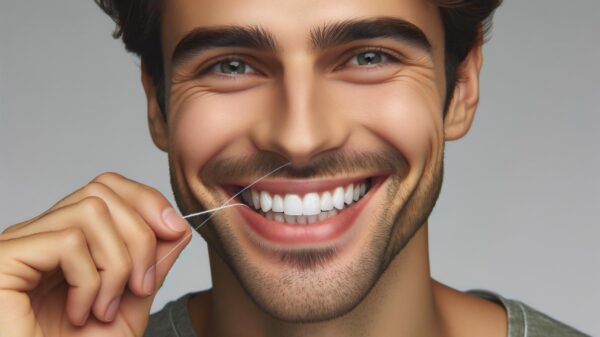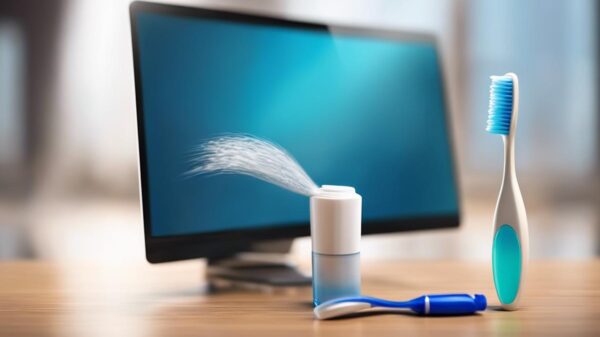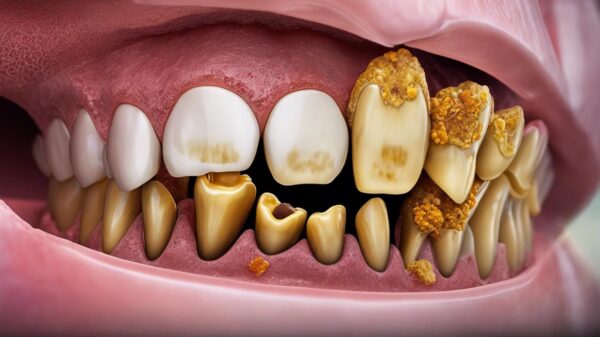Brushing Your Teeth After Wisdom Teeth Removal
The removal of wisdom teeth is a fairly common procedure. If you are lucky, you will not need this surgery. However, many people who develop wisdom teeth experience issues like pain, swelling, or disorientation. A dentist can usually tell if wisdom teeth are impacted (meaning they fail to properly break through the gums).
Wisdom teeth typically emerge between ages 17 and 25 years old. However, some people may never get their wisdom teeth. If you do need to have your wisdom teeth removed, it is important to know what to expect after the surgery. One of the most common things people wonder about is whether or not they can brush their teeth right after wisdom teeth removal surgery.
Is it okay to brush your teeth after your wisdom teeth have been removed? According to the dental professionals at Magnolia Family Dental Care, it is possible to brush your teeth right after wisdom teeth removal surgery. However, you should avoid doing so until the numbness goes away. If your dentist didn’t prescribe it, you don’t need to use any sort of mouthwash or special rinse on your gums either. A soft toothbrush with rounded bristles can be used for this task. You can also use a baby toothbrush if the area is too sensitive to handle a regular toothbrush.
In other cases, your dentist might tell you to wait a week or longer after you have had your wisdom teeth removed before brushing your teeth. This is because the gums can be tender in some cases when you brush too soon. If this is the case, then it will take about one week for the pain and/or swelling to go away (this depends on the procedure as well as general health).
Dental Care After Wisdom Teeth Removal
 As far as most people are concerned, it is safe to brush your teeth after wisdom teeth removal surgery. If you have been given a prescription mouthwash or other medication, then follow the instructions provided by your dentist. Always use a soft toothbrush and never rush this process if gums are still tender or bleeding.
As far as most people are concerned, it is safe to brush your teeth after wisdom teeth removal surgery. If you have been given a prescription mouthwash or other medication, then follow the instructions provided by your dentist. Always use a soft toothbrush and never rush this process if gums are still tender or bleeding.
By general consensus, brushing your teeth after wisdom teeth removal surgery is a safe and effective way to take care of your smile! General dental care after wisdom teeth removal surgery is the same as before.
Brush twice a day and use floss as needed. If your dentist says it is okay, you can use mouthwash as well. Always keep an eye out for changes in your teeth and gums, especially if you are brushing regularly.
In addition to teeth brushing, there are other everyday things people wonder if they can safely do after wisdom teeth surgery. What foods should you avoid? Can you take pain medication? Let’s look into some of these common questions!
Common Questions After Wisdom Teeth Removal
While wisdom teeth removal is a common procedure, there are many questions that patients have before their appointment.
Can You Eat Chewy Food After Wisdom Teeth Removal Surgery?
Some foods are not advisable to eat after wisdom teeth removal surgery. This is because they can be chewy or difficult to chew, which might irritate your gums. It is best to choose soft foods that are easy to cut up into smaller pieces with a fork. If you are still having pain or issues with your gums after one week, you should wait until the pain has gone before eating chewy food.
Can You Take Medication After Wisdom Teeth Removal Surgery?
Some prescriptions may be given to you after wisdom teeth removal surgery. This depends on the dentist and what type of procedure was performed. If your dentist did prescribe any medicine, then follow the instructions. If you are still having issues after one week, then call your dentist to ask any remaining questions about your situation.
What Foods Should You Avoid After Wisdom Teeth Removal Surgery?
Some people find that certain foods irritate their gums or cause other issues after wisdom teeth removal surgery. While this is nearly impossible to predict, it is best to avoid spicy or acidic food. If you are still having pain after one week, then follow the instructions given by your dentist for when you can resume eating these foods again.
Can I Drink Soda Or Alcohol After Wisdom Teeth Removal Surgery?
Take care when drinking sodas and other beverages after wisdom teeth removal surgery. These drinks can be acidic and cause tooth pain or damage, especially if you accidentally swallow some of the contents with a mouthful of drinks! This is easier to prevent if you drink slowly with a straw. Alcohol may add fuel to the fire (so to speak), so avoid drinking alcohol until you are completely healed from the surgery.
Will I Have To Take Off Work For Wisdom Teeth Removal Surgery?
It is usually possible to go back to work the same or the next day after wisdom teeth removal surgery. You can use ice packs and take pain medicine as needed after the procedure.
How Long Does Full Healing Take?
It can take several weeks for your mouth to recover from wisdom teeth removal surgery. Many people experience pain and swelling after the procedures. This may last up to a week or so, but it varies depending on what type of procedure was performed to remove the impacted wisdom teeth.
Can I Exercise After Wisdom Teeth Removal?
Generally, yes! If the doctor says it is okay after an examination, you can exercise. This includes running, jumping rope, and playing sports with your friends. Make sure that whatever you are doing doesn’t cause pain or damage to your gums or teeth.
What Are Wisdom Teeth Anyway?
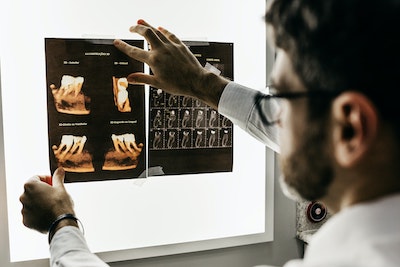 Maybe you are wondering what exactly wisdom teeth are and why they need to be removed in the first place? The short answer is they are the last set of molars you grow in your lifetime.
Maybe you are wondering what exactly wisdom teeth are and why they need to be removed in the first place? The short answer is they are the last set of molars you grow in your lifetime.
They usually grow between the ages of 17-25. They are called “third molars” or “wisdom teeth”. About 85% of people have four wisdom teeth.
The long answer starts with how our mouths have evolved. Mammals have a finite number of teeth that come in specific sizes for chewing food—a very important function!
But at some point along the way, humans found a way to process and eat food that was softer and easier to chew. This led our mouths to start growing smaller and eventually developing fewer teeth than the standard mammalian set.
However, we still have wisdom teeth! The jawline is shaped such that wisdom teeth can still form, even if they aren’t useful for eating anymore. When it comes time for wisdom teeth to erupt, they can cause crowding problems with other teeth or even create infections. As many as 60% of wisdom teeth cause problems and need to be removed. Sometimes, however, you can keep your wisdom teeth without any trouble.
What Are The Benefits Of Wisdom Teeth Removal?
Having all of one’s wisdom teeth removed has many benefits that go beyond just cosmetic issues. First, if you are having pain related to the third molars, then they should be removed. This pain can affect your quality of life and even lead to a loss of appetite when you are in too much pain to eat.
Wisdom teeth removal surgery is considered a very safe procedure when it is performed by a qualified dentist or oral surgeon. Once the wisdom teeth have been removed, you will experience an increase in the amount of space in your mouth. You might also gain relief from the pain that these teeth may be causing in your gums or other parts of your jaw.
What Is The Process For Wisdom Teeth Removal?
Since wisdom teeth removal surgery is only performed by a professional, it will require a preliminary examination before it can begin. In this examination, the dentist will make sure that this is truly the best option for you. He or she might take x-rays to get a better look at the impacted teeth. If it turns out that wisdom teeth removal is necessary, then your dentist can schedule you for your surgery which should last no longer than an hour.
- The dentist will first put you to sleep using anesthesia. If it is just one wisdom tooth that needs removal, then this may be done with just numbing shots in the mouth.
- After this, the dentist will use a scalpel and small surgical tools to remove the impacted wisdom teeth.
- He or she will then stop any bleeding and suture the area closed.
- Once you are awake and your surgery is completed, you can go home to recover until your follow-up appointment in about a week!
Final Thoughts
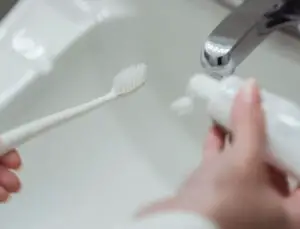 Now that your top questions about dental care after wisdom teeth are answered, you might be ready for this dental surgery. For help determining whether or not you should have your wisdom teeth removed, make an appointment and ask for advice from an orthodontist.
Now that your top questions about dental care after wisdom teeth are answered, you might be ready for this dental surgery. For help determining whether or not you should have your wisdom teeth removed, make an appointment and ask for advice from an orthodontist.
And again, the best thing to do after wisdom teeth removal surgery is to take care of yourself. Rest as much as you can and stay hydrated! Continue to brush and floss your teeth regularly and follow the dentist’s instructions for post-surgery care.



